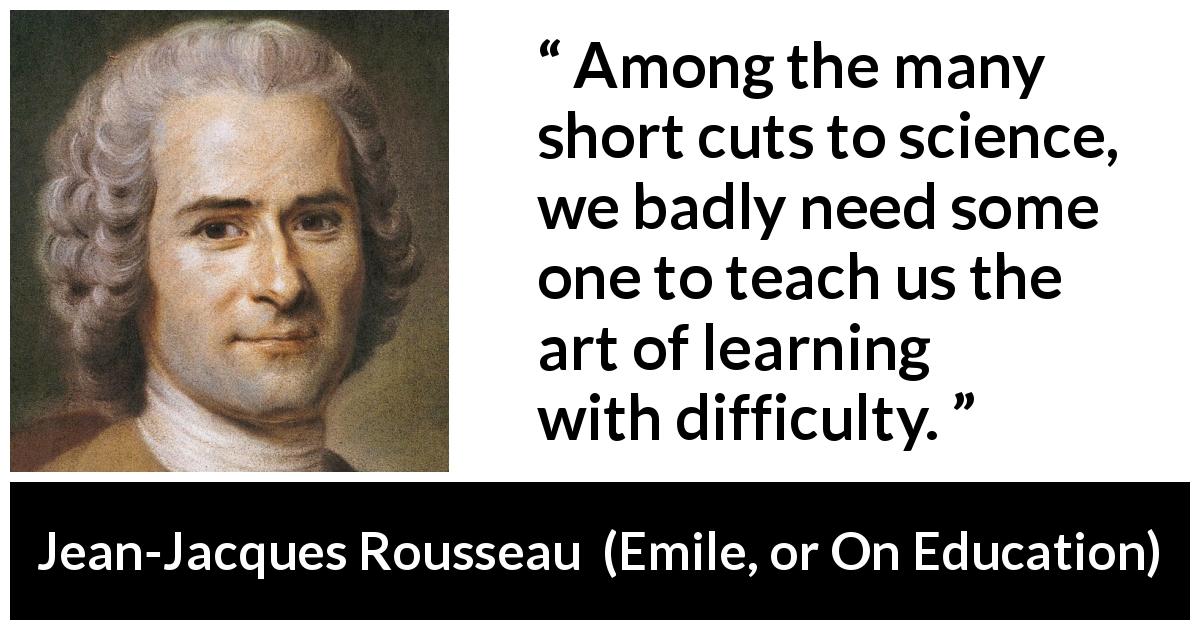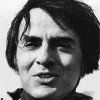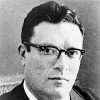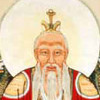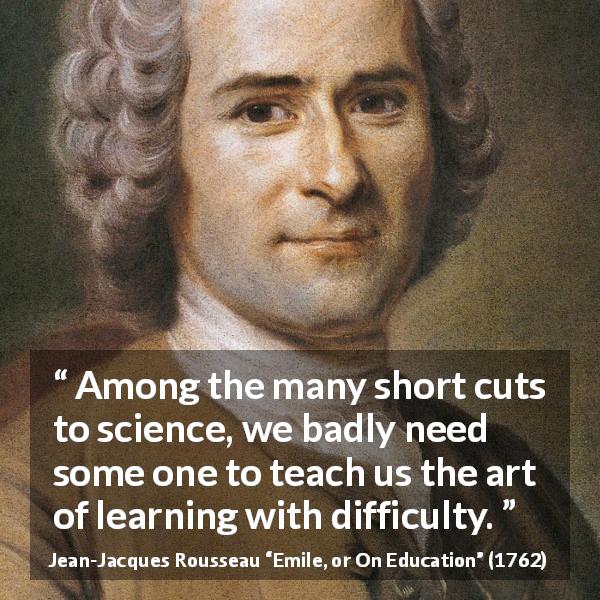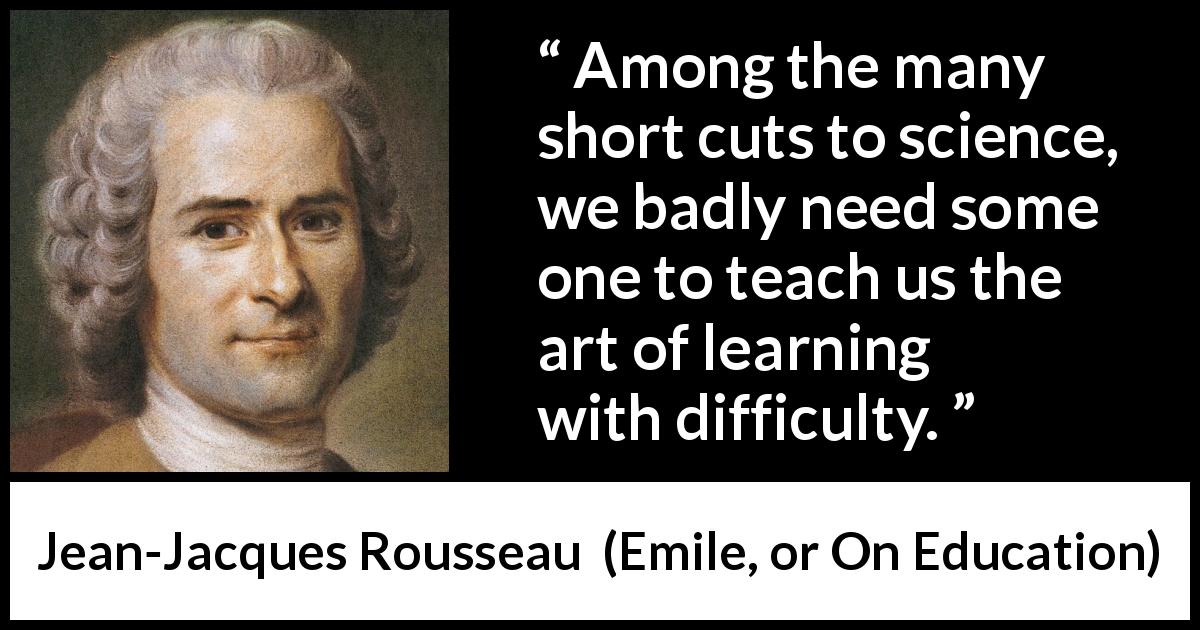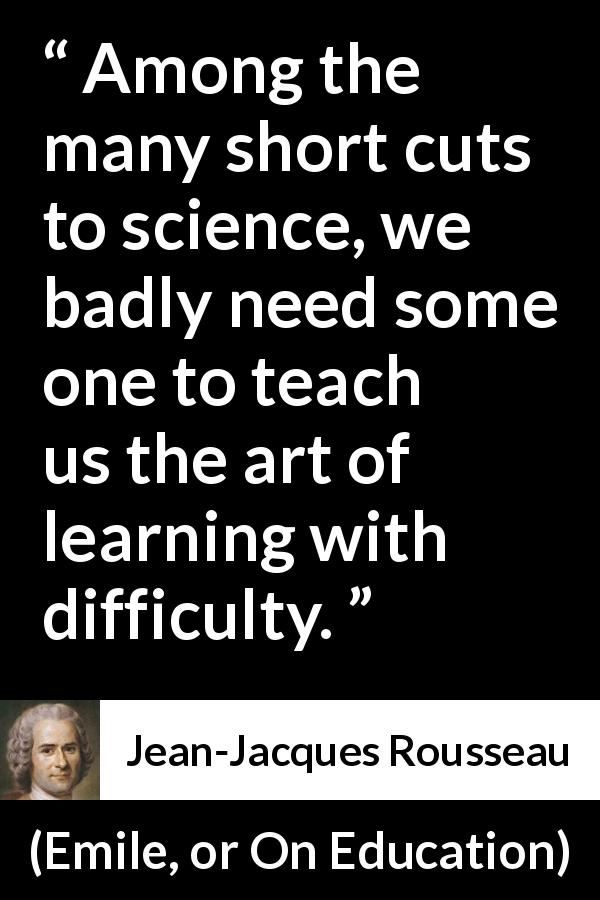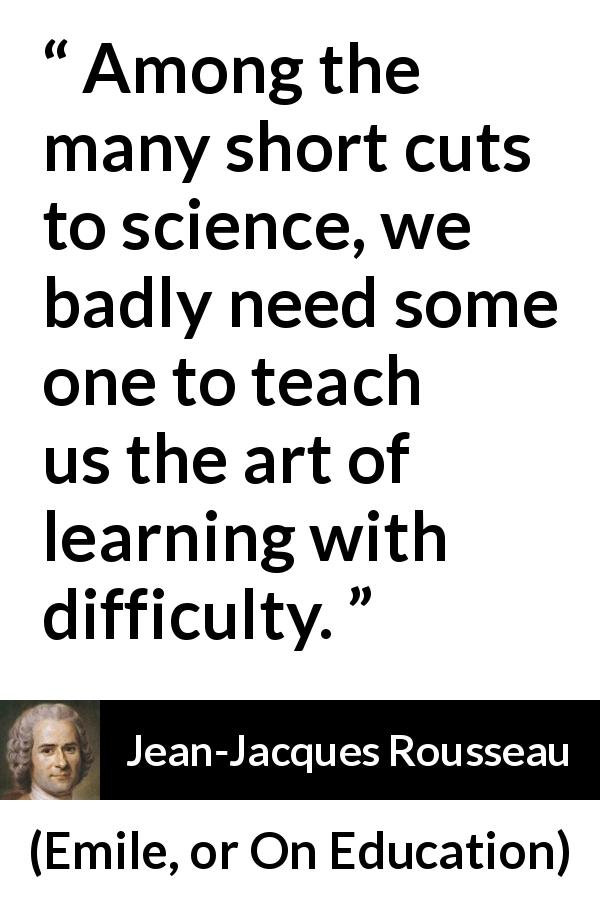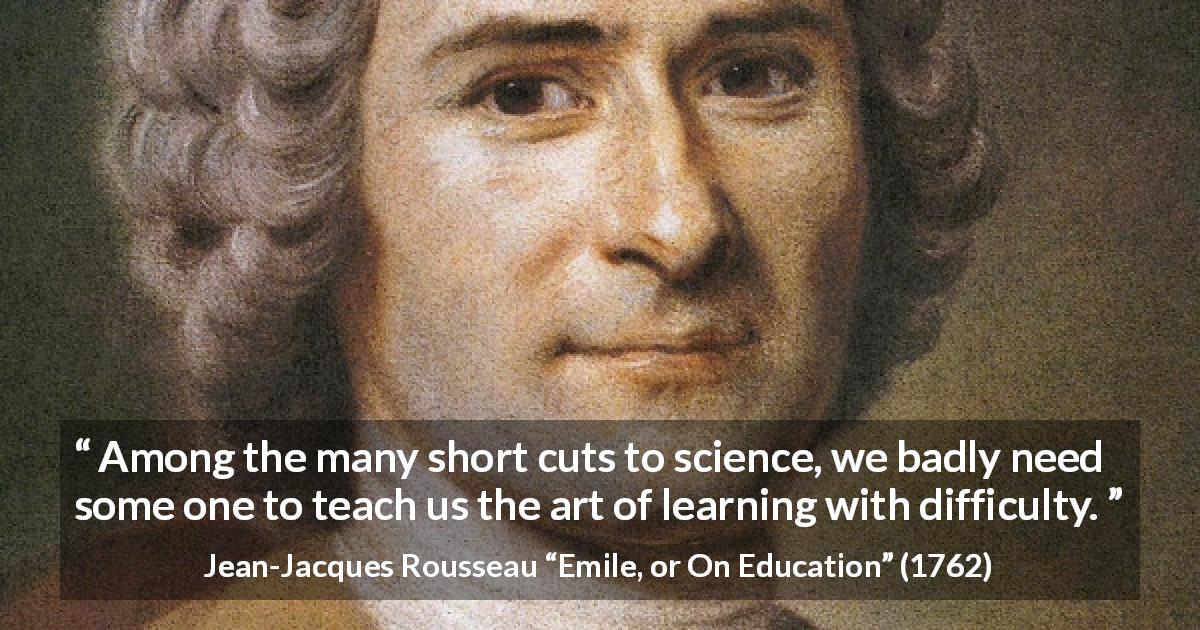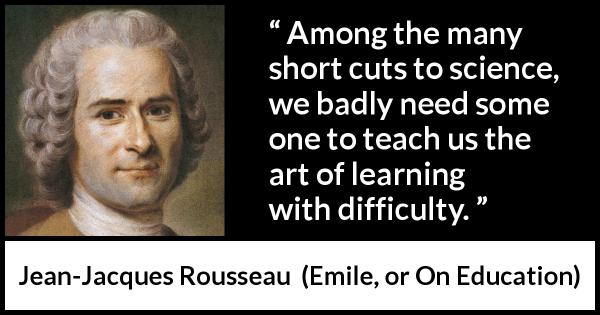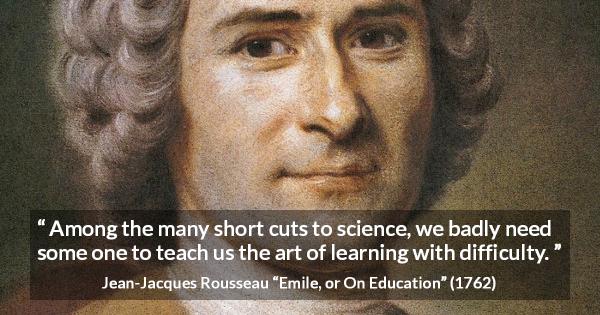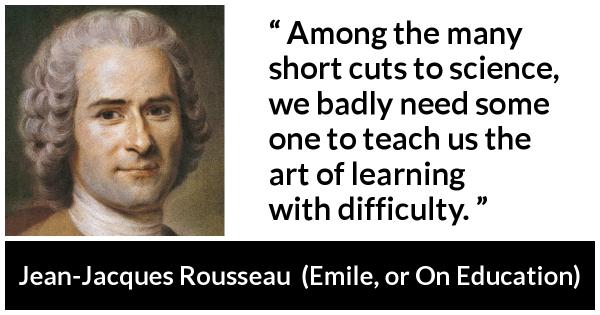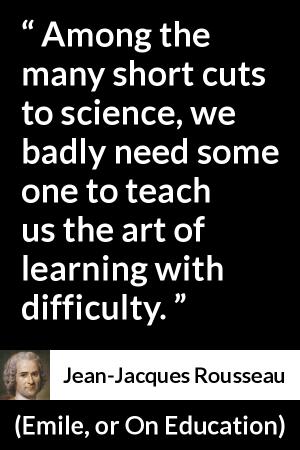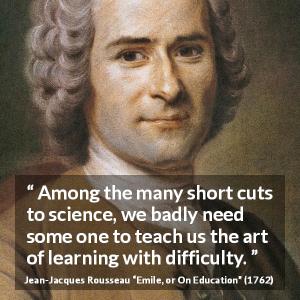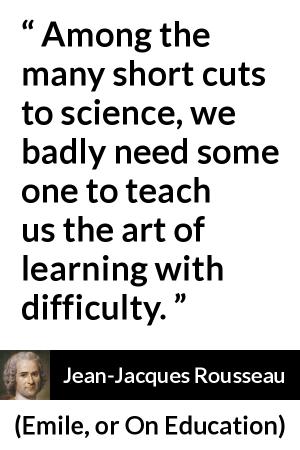“ Among the many short cuts to science, we badly need some one to teach us the art of learning with difficulty. ”
Jean-Jacques Rousseau, Emile, or On Education (1762). copy citation
| Author | Jean-Jacques Rousseau |
|---|---|
| Source | Emile, or On Education |
| Topic | learning teaching difficulty |
| Date | 1762 |
| Language | English |
| Reference | |
| Note | Translated by Barbara Foxley |
| Weblink | http://www.gutenberg.org/cache/epub/5427/pg5427-images.html |
Context
“Undoubtedly the notions of things thus acquired for oneself are clearer and much more convincing than those acquired from the teaching of others; and not only is our reason not accustomed to a slavish submission to authority, but we develop greater ingenuity in discovering relations, connecting ideas and inventing apparatus, than when we merely accept what is given us and allow our minds to be enfeebled by indifference, like the body of a man whose servants always wait on him, dress him and put on his shoes, whose horse carries him, till he loses the use of his limbs. Boileau used to boast that he had taught Racine the art of rhyming with difficulty. Among the many short cuts to science, we badly need some one to teach us the art of learning with difficulty.
The most obvious advantage of these slow and laborious inquiries is this: the scholar, while engaged in speculative studies, is actively using his body, gaining suppleness of limb, and training his hands to labour so that he will be able to make them useful when he is a man.” source
The most obvious advantage of these slow and laborious inquiries is this: the scholar, while engaged in speculative studies, is actively using his body, gaining suppleness of limb, and training his hands to labour so that he will be able to make them useful when he is a man.” source
